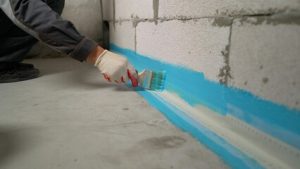Waterproofing transforms your basement from a damp, musty space into a cozy family room, state-of-the-art home theatre, or personal gym. It also increases your usable square footage and safeguards your personal belongings.
Excess moisture in the basement can breed mold and mildew, which pose serious health risks. These microorganisms release spores that can infiltrate your indoor air, triggering respiratory problems and other health issues. Contact a local All Pro Services professional for an estimate today.

Prevents Water Damage
Many homeowners are eager to invest in home improvements that will boost their property’s value. However, few people realize that basement waterproofing is one of the most beneficial home improvement projects.
Water damage has the potential to be devastating for your home. Damp walls, floors, and wood supports can be prone to rot and fungus growth, which isn’t just unsightly; it can also compromise the structural integrity of your entire house. This can lead to expensive repairs and even a potential collapse of the foundation.
A damp basement also creates the perfect environment for mold and mildew, which are unhealthy for you and your family. They can also trigger allergies and respiratory problems. Basement waterproofing prevents these problems from occurring by creating a dry, clean, and healthy environment.
In addition, a damp and moldy basement makes your home less energy efficient. The moisture in the air causes your HVAC system to work harder to heat and cool your home, leading to high energy bills. Basement waterproofing will eliminate this issue and improve your home’s energy efficiency, which is a major selling point for eco-minded buyers.
Whether you’re planning to sell your home in the future or simply want to make it a more comfortable place to live, it’s worth the investment of a basement waterproofing service. You’ll notice the difference in your home’s value when you start getting more offers and a faster sale.
Boosts Your Home’s Value
Basement waterproofing can boost your home’s value by making it a safe, comfortable space you can use for additional living space. It can also protect your investment in your home, avoiding costly repairs and maintenance costs associated with water damage.
When water seeps into the foundation of your home, it can cause structural damage over time. This can lead to cracked walls, sagging floors, and even complete structural collapse. Waterproofing solutions prevent the infiltration of groundwater and stop it from damaging your home’s structure, preserving its integrity and increasing its value.
In addition, a damp basement can lead to mold and mildew growth. These organisms produce mycotoxins, which can cause serious respiratory issues. This can be especially problematic for elderly adults and children, who are at a greater risk of developing mold-related illnesses. Waterproofing your basement eliminates the moisture and spores that breed these organisms, improving indoor air quality and protecting you and your family’s health.
A damp basement can be a deal-breaker for potential homebuyers. Waterproofing your basement eliminates this concern and allows you to sell your home at a higher price. However, it’s important to note that the resale value of your home depends on many factors, including the location and real estate market. While many home improvement projects can improve your home’s value, few are as universally appreciated as basement waterproofing.
Prevents Mold Growth
A moldy basement creates a health hazard for your family. The mold spores that grow in humid conditions can cause respiratory problems and trigger allergies. These spores can also destroy porous items like furniture, carpeting, and paper products. They can even contaminate food. Waterproofing prevents the growth of mold and mildew, making your home a healthier place for your family to live.
A professional basement waterproofing contractor uses a variety of methods to seal and protect the basement from groundwater, rain, and other sources of moisture. Some of these methods include installing drainage systems, sump pumps, and vapor barriers inside the basement to manage moisture that has already entered the space.
Exterior basement waterproofing involves excavating around the foundation and applying waterproof membranes or coatings to prevent water from entering the space. It may also involve installing a French drain system that intercepts groundwater and redirects it away from the basement.
A dry, well-waterproofed basement makes it possible to convert the space into a family room, home office, or extra bedroom, which will boost your property value and increase your living comfort. A dry basement can also make it easier to clean your home, reducing the risk of leaks and dampness that can damage surfaces and cause odors. It also helps keep your heating and cooling bills lower by preventing air leaks that can force your systems to work harder.
Increases Your Home’s Comfort
A wet basement can cause major issues that affect the entire home, from mold growth to structural problems. Waterproofing solutions help to preserve your basement’s concrete structures and prevent damage from moisture, making it easier for you to maintain a dry living space and increasing the value of your home.
A damp basement can attract pests, which are a health hazard for your family. It can also encourage the growth of mildew and mold, which can trigger respiratory problems for those in your home. Basement waterproofing reduces humidity levels and prevents the development of mold, mildew, and fungus, creating a healthier indoor environment for your family.
Many homeowners use their basements as recreation spaces, home offices, or additional bedrooms, but a wet basement makes these areas unusable. Investing in a professional waterproofing solution allows you to transform your basement into a comfortable, usable living space. This increases the value of your property and can make it easier to sell in the future if you decide to move. A dry basement can also provide a more spacious area to store your belongings or extra furniture. In addition to preventing costly water damage, waterproofing can save you money on energy costs by keeping your home warmer in the winter and cooler in the summer. This is a great way to increase the resale value of your home and reduce carbon emissions.


